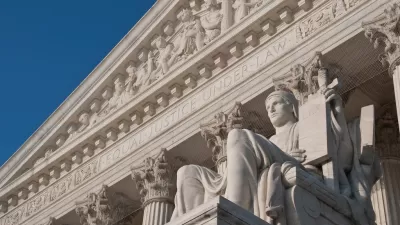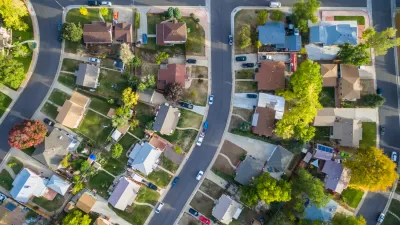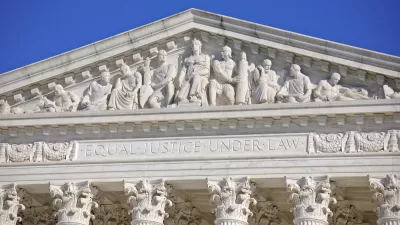The Fair Housing Act, considered under threat by the Trump Administration and the Republican majority in Congress, still has power, but cities have long road ahead to prove bans liable for harms caused by predatory and discriminatory lending.

"The U.S. Supreme Court ruled Monday that the city of Miami can sue the nation’s largest financial institutions over allegations that predatory lending practices in minority communities violated the Fair Housing Act and contributed to a real estate meltdown that nearly bankrupted the city," report Lance Dixon and David Smiley.
In effect, the ruling protects the right of the city to sure the banks, but Dixon and Smiley describe the court victory as partial: "the justices also vacated the portion of the 11th Circuit’s ruling that found the city had sufficiently argued that the banks’ activities can be directly blamed for the city’s financial problems on the basis that the fallout should have been foreseeable. They directed the court to reassess that issue, with the three dissenting justices remaining highly skeptical that the city can prove its case."
That being said, the ruling opens the door for cities all over the country to sue banks for discriminatory and predatory lending. Similar lawsuits are pending in Los Angeles, Cook County in Illinois, Oakland, and Miami Gardens.
There's another takeaway from the court ruling, as expressed in a follow-up article by Oscar Perry Abello: "The Fair Housing Act (FHA) lives, for now." Perry Abello quotes from a statement released by the American Civil Liberties Union following the Supreme Court decision, with this soundbite from Dennis Parker, director of the ACLU’s Racial Justice Program: "With this decision, the Supreme Court has acknowledged the crucial role of municipal governments in protecting residents’ rights. In housing and lending as in other areas, cities can and should serve as a bulwark against discrimination."
FULL STORY: Miami can sue big banks for predatory lending, Supreme Court rules

Planetizen Federal Action Tracker
A weekly monitor of how Trump’s orders and actions are impacting planners and planning in America.

Maui's Vacation Rental Debate Turns Ugly
Verbal attacks, misinformation campaigns and fistfights plague a high-stakes debate to convert thousands of vacation rentals into long-term housing.

San Francisco Suspends Traffic Calming Amidst Record Deaths
Citing “a challenging fiscal landscape,” the city will cease the program on the heels of 42 traffic deaths, including 24 pedestrians.

Amtrak Rolls Out New Orleans to Alabama “Mardi Gras” Train
The new service will operate morning and evening departures between Mobile and New Orleans.

The Subversive Car-Free Guide to Trump's Great American Road Trip
Car-free ways to access Chicagoland’s best tourist attractions.

San Antonio and Austin are Fusing Into one Massive Megaregion
The region spanning the two central Texas cities is growing fast, posing challenges for local infrastructure and water supplies.
Urban Design for Planners 1: Software Tools
This six-course series explores essential urban design concepts using open source software and equips planners with the tools they need to participate fully in the urban design process.
Planning for Universal Design
Learn the tools for implementing Universal Design in planning regulations.
Heyer Gruel & Associates PA
JM Goldson LLC
Custer County Colorado
City of Camden Redevelopment Agency
City of Astoria
Transportation Research & Education Center (TREC) at Portland State University
Jefferson Parish Government
Camden Redevelopment Agency
City of Claremont




























